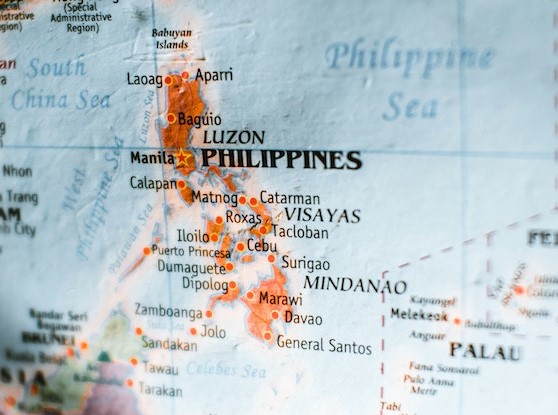Let us assist you in identifying the crucial aspects of purchasing a property in the Philippines as a foreign national. Read on for more valuable information.
Several factors are needed when considering buying real estate in the Philippines. In addition to the property type, location, and budget, there are specific considerations for foreign nationals. Understanding the property-buying process for foreign nationals in the Philippines holds significant importance due to specific legal restrictions on foreign ownership.

These restrictions, primarily on land ownership, shape the landscape for foreign property investments. Foreigners are not permitted to own land in the Philippines, and this limitation necessitates a deep understanding of alternative options and legal provisions available for foreign investors.
Investing in Real Estate in the Philippines: A Foreigner’s Guide
A. Property Buying for Foreign Nationals
1. Legal Compliance
Foreign nationals must comply with the property-buying process to adhere to Philippine property laws and regulations. Lack of knowledge regarding these laws can result in legal complications, property disputes, and financial risks.
2. Investment Opportunities
Knowledge of the legal framework empowers foreign investors to explore other avenues, such as condominium units and apartments, while collaborating with local partners like trusted brokers, including HousingInteractive, or top developers to meet the 60% Filipino ownership requirement. This understanding allows them to tap into the Philippine real estate market, known for its potential for capital appreciation and rental income.
3. Long-Term Planning
Foreign nationals can take the opportunity to make long-term investments in the Philippines by leasing land for up to 50 years and an option to renew for another 25 years. Understanding these lease arrangements is crucial for planning sustainable and profitable property ventures.
4. Risk Mitigation
Foreign investors can make informed decisions, select suitable investment strategies, and navigate potential challenges effectively when they are well-versed in the property-buying process. This knowledge is essential for risk mitigation and ensuring a successful investment experience.
5. Financial Planning
Comprehending the legal framework is crucial for foreign nationals to plan their finances, including budgeting for property acquisition, maintenance, and associated taxes or fees. It also allows them to strategize for potential returns on investment.
| Understanding the property-buying process in the Philippines is vital for foreign nationals to harness the opportunities presented by this dynamic real estate market while ensuring they comply with the local laws and regulations. It paves the way for secure, profitable, and legally sound property investments in the country. |
B. Legal Framework for Foreign Ownership
1. Laws and Regulations
The Philippines defines “real estate” broadly: land, buildings, roads, and various attachments to immovable property. The Civil Code covers these definitions. There are laws governing real estate transactions, such as the Civil Code, Presidential Decree No. 1529 (Property Registration Decree), Commonwealth Act No. 141 (Public Land Act), Republic Act No. 4726 (Condominium Act), the Foreign Investors’ Lease Act, and the Realty Installment Buyer Protection Act.

a. The Civil Code: BOOK II: Property, Ownership, and its Modifications.
b. The Public Land Act No. 2874, November 29, 1919.
c. Condominium Act No. 4726 of 1966.
d. The Property Registration Decree No. 1529, s. 1978.
e. Foreign Investments Act of 1991; As Amended by the Republic Act No. 11647 of 2022: An act promoting foreign investments.
f. Foreign Investors’ Lease Act: Supreme Court E-Library 2019: Republic Act No. 7652, June 04, 1993.
g. Realty Installment Buyer Protection Act No. 6554, known as The Maceda Law.
The Philippines is one of the few countries in the world that offers foreign investors a wide range of options for their real estate investments. The laws and regulations governing these investments are well-defined, which helps create a transparent ownership and transfer process. Understanding the legal framework surrounding foreign ownership is essential for investors who want to capitalize on opportunities in this bustling market.
| Consulting an experienced attorney is crucial for understanding the legal aspects and rights of foreign ownership in the Philippines. It ensures successful investments that comply with all relevant laws and regulations. Familiarizing yourself with the legal framework governing foreign ownership will help you make informed decisions when investing in Philippine real estate. |
C. Types of Properties Eligible for Foreign Ownership
When investing in real estate in the Philippines, it’s crucial to know which properties non-Filipino citizens can purchase. From residential housing to commercial spaces, various property types are appealing investments for foreign nationals or companies. Understanding the regulations will help you better prepare for this exciting journey.

1. Ownership of Land
Foreigners cannot own land in the Philippines. Land ownership is limited to Philippine citizens, domestic partnerships or associations wholly owned by Filipinos, or corporations with at least 60% of the capital stock owned by Filipinos.
2. Ownership of Condominium Units
The Condominium Act restricts foreign ownership of condominium units. If unit owners own common areas, units can only be owned by Philippine citizens or corporations with at least 60% Filipino ownership. If a condominium corporation holds common areas, foreigners may own units as long as their ownership doesn’t exceed 40%.
3. Ownership of Other Real Property
Foreigners can own other types of real property, such as buildings or land improvements, without the same restrictions as land ownership.
Guide to Real Estate Investments for Foreign Nationals
A. Restrictions and Limitations Imposed
The Philippine government employs the Torrens System for land registration, which bestows conclusive titles upon registered landowners. However, for unregistered land, it is necessary to submit the title to the appropriate court for filing. This process ensures both accuracy and legality in land ownership documentation. Transactions involving registered land, like sales, mortgages, or leases, are filed, recorded, and validated with the register of deeds.

a. The Land Registration Authority (LRA) handles decrees of registration, and registers of deeds and manages local records and instruments affecting lands.
b. Foreign investors often register their interests under the Torrens system to protect property interests, offering constructive notice of such interests to all parties involved.
c. Liability related to real estate is generally transferred with the property, and registered owners can be held accountable for environmental or other violations that occurred before the transfer of ownership. It’s crucial to notify relevant authorities about property transfers to avoid liability.
d. Foreign ownership is limited in various aspects, and compliance with these restrictions is essential to engage in real estate transactions within the Philippines.
| Understanding the legal framework for foreign ownership in the Philippines is critical for foreign nationals interested in property investments, as it determines what types of properties they can own, the limitations imposed, and the associated registration and liability considerations. Compliance with these regulations is vital for a successful and legally sound investment in the Philippine real estate market. |
Source: Baker & McKenzie Resource Hub: Real Estate Law Philippines
Advantages of Investing in Philippine Real Estate
1. Investment Opportunities and Potential for Capital Appreciation
The Philippines’ real estate market presents investment opportunities for discerning investors looking for potential capital appreciation. The country’s economy is growing steadily, which creates a favorable environment for property appreciation.
Moreover, the residential market is rising, particularly in areas such as Makati CBD, Rockwell Center, Ortigas Center, and Fort Bonifacio, thanks to returning expatriates. With the expected drop in the vacancy rate from 17.6% in 2022 to 17% by the end of 2023, there will be a positive influence on residential rents and prices, which makes it a perfect time to invest. With its dynamic real estate market, an investment in the Philippines can be an excellent choice for those seeking to grow their resources.
a. Makati City
Investing in real estate has always been a solid investment, and Makati City is one of the best places in the metro to dive into the market. With plenty of residential and commercial options available, the city offers different districts like Legaspi Village, San Antonio Village, Salcedo Village, Chino Roces Avenue, and Ayala Avenue, to name a few.

Investing in real estate in Makati City can be a great decision, not only because of the variety of options available but also because of the city’s growing economy and proximity to establishments. With so many advantages, it’s no wonder why investing in Philippine real estate, especially in Makati City, has become a top choice for many buyers.
b. Ortigas
Ortigas Avenue, located in the Central Business District of Pasig City, provides unparalleled convenience and comfort for leisure and business travelers. Easily accessible from Mandaluyong, Pasig, and Quezon City, this area offers a range of amenities like shopping malls, restaurants, bars, and more to cater to your needs. Additionally, Circumferential Road-5 (C5) and Circumferential Road-4 (EDSA) are nearby, making it a practical location for travelers.
Ortigas Center, owned by the Ortigas family’s Filipino conglomerate, has numerous corporate and commercial locations. The flexible nature of businesses here allows for suitable opportunities across several sectors, such as banking and finance, IT, retail, and manufacturing. Furthermore, with a range of amenities offered, Ortigas Center presents a viable option for those interested in investing in Philippine real estate.
c. Fort Bonifacio Global City
A financial, commercial, and lifestyle district in Taguig City, Fort Bonifacio Global City (BGC) traces its history to the American military base, Fort McKinley, constructed in 1902. Today, it has transformed into an urban paradise with high-end malls, museums, restaurants, condominiums, embassies, and even a cemetery where US soldiers are interred.
The location of BGC offers convenient access to establishments in Makati Central Business District and other parts of Taguig City, including Arca South, McKinley Hill, Uptown Bonifacio, West BGC, and other business districts closest to home. Families and students enjoy the proximity of notable schools, such as British School Manila, Manila Japanese School, International School Manila, University of the Philippines, and Treston International College. Investing in residential real estate in Fort Bonifacio Global City is a wise financial decision for those looking for a modern-day urban oasis.
2. Desirable Locations, Including Tourism and Retirement Destinations
The Philippines presents many real estate investment opportunities, showcasing its premier tourist destinations encompassing scenic beaches, tropical landscapes, and bustling cities. Some notable locations include Aklan, Batangas, Bulacan, Bohol, Palawan, and Pampanga.
Investors can benefit from tourism-related rentals and income through properties in these areas. With an affordable cost of living, warm climate, and friendly culture, the Philippines is also an appealing option for retirees looking to invest in retirement-friendly real estate.
3. Income Potential Through Rental Properties
Real estate investing is a popular and lucrative way to generate income. There are several options for investors seeking to rent out their properties. Residential homes, apartments, and commercial spaces are all viable options. In tourist destinations, high occupancy rates can lead to significant rental income from vacation rentals and long-term leases.
Additionally, the booming BPO industry in the Philippines offers opportunities to produce income through commercial and office space rentals in central business districts. With the potential for consistent rental income and long-term capital appreciation, investing in rental properties can be a wise financial decision.
Providing foreign nationals with valuable information to make informed property investment decisions in the Philippines. Investing in Philippine real estate offers many advantages: potential for capital appreciation, attractive tourist and retirement locations, affordable property prices, and rental income opportunities. Understanding the market dynamics and regulations is crucial for successful real estate investments in the Philippines.

























